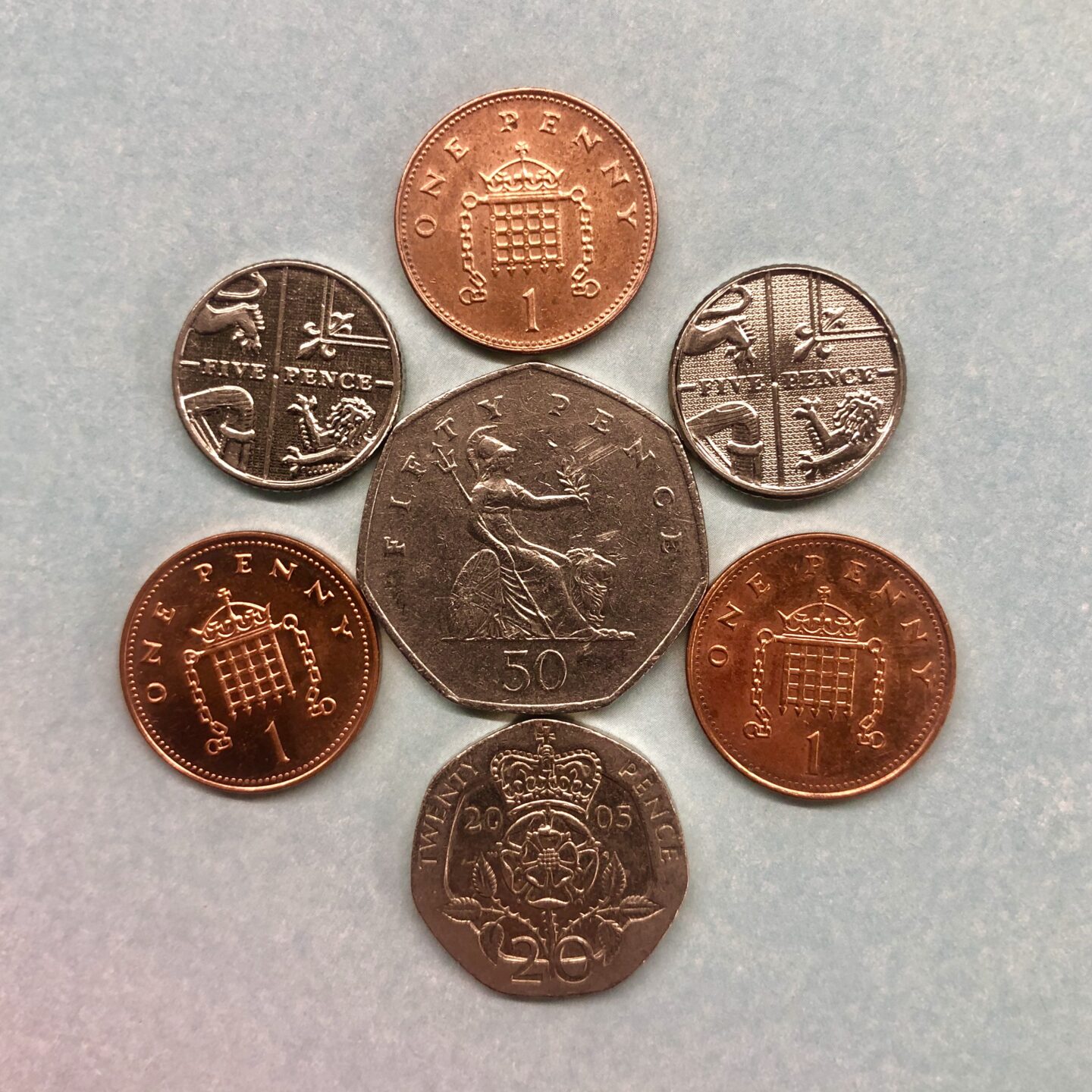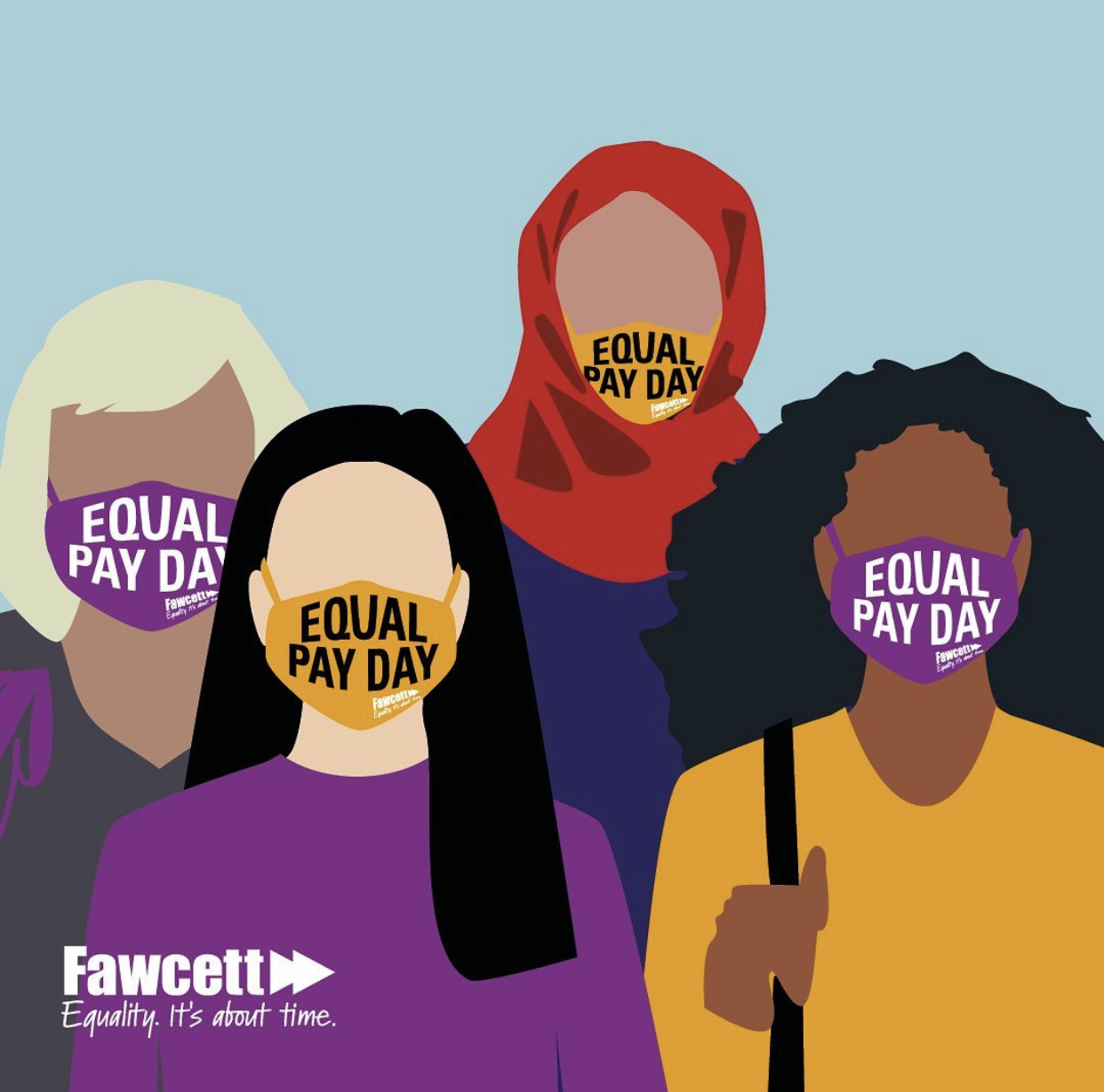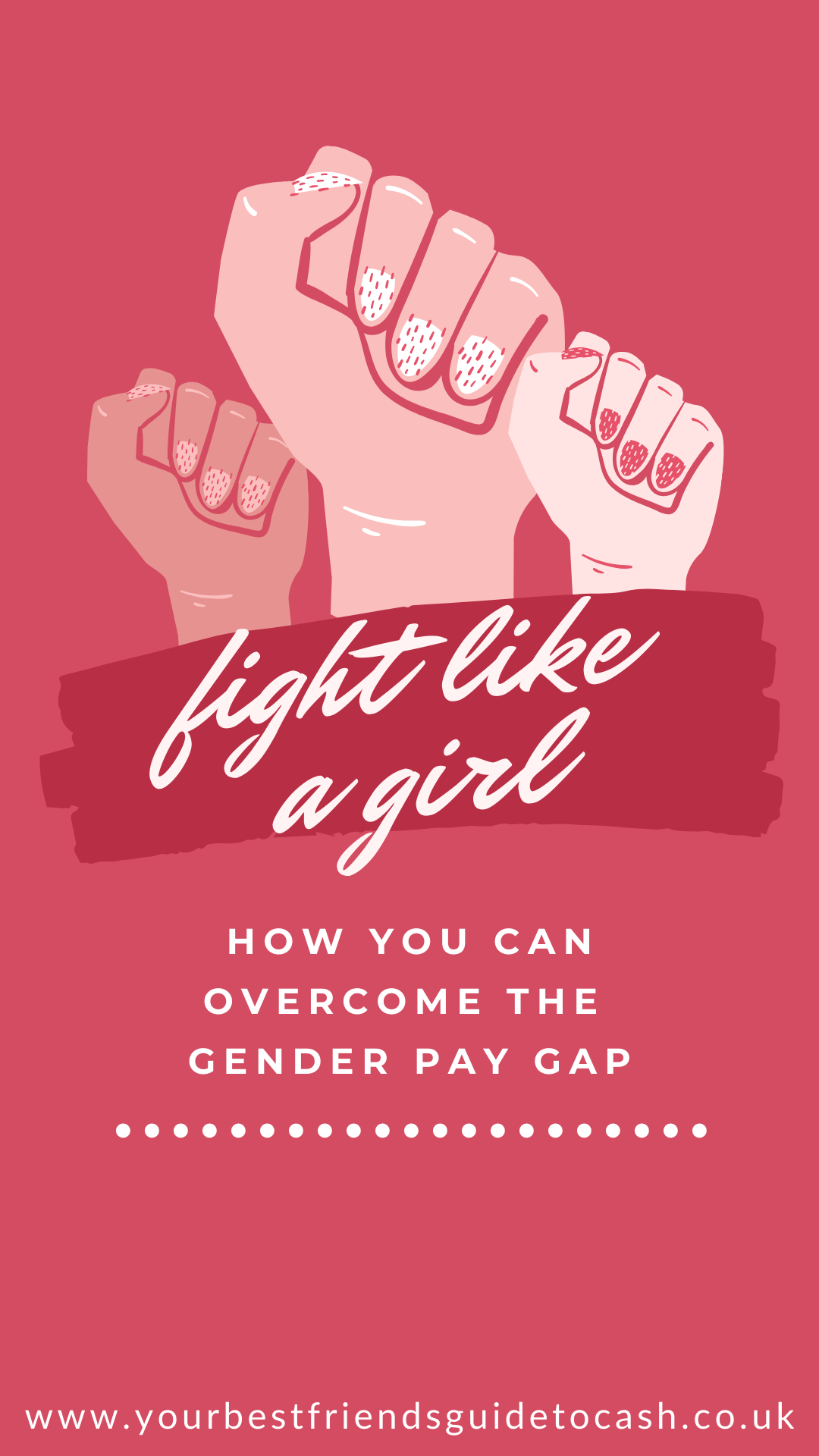Today is Equal Pay Day – but don’t get too excited, it’s nothing to celebrate. Thanks to the gender pay gap, women still earn almost a fifth – 17.3 per cent to be precise – less than men.
In other words, from today (November 20), up until the end of the year, us women are effectively working for free when compared like-for-like to men’s salaries.
It’s enough to make my blood boil to be honest – and who can blame me? My time is just as valuable as a man’s.
And guess what? So’s yours.

Today on Equal Pay Day, I’m joining the Fawcett Society and making a statement to shine a light on pay discrimination. Admittedly, my badge skills aren’t the best – it is made from paper
ISN’T ILLEGAL TO PAY WOMEN LESS?
In the past, I posted on social media about this topic had lots DMs asking the same question: “isn’t it against the law to pay women less”?
My answer: “Why, yes it is, but that doesn’t mean we are taking home less than our male counterparts.”
Stick with me here. I’ll explain.
Due to the Equal Pay Act of 1970, yes, it is illegal to pay men and women differently for the same work – yet nearly 50 years later, the gender pay gap persists – in that women are making less on average than men.
The thing is, that the gender pay gap I am often banging on about isn’t the same as equal pay – though, I’ll admit, it’s confusing.
The Gender Pay Gap is the difference between what men typically earn in an organisation compared to what women earn, irrespective of their role or seniority.
Equal Pay, on the other hand, is the legal requirement for men and women to be paid the same for performing the same or like work or work.
So, while on paper, great inroads have been made in terms of gender equality in terms of pay, because women are still typically the primary caregivers of children and elderly relatives, we are often working fewer hours to look after family in one way, shape or form.
This often means that at the time when men are getting promoted and enjoying pay rises, women find their careers ground to a stuttering halt.
This can have knock on effects across their life. If you earn less, then it follows that you will also save less for the future.

It’s hard to believe that women in the UK are only making 83p for every pound earned by a man. Am I right? FFS
JUST WHEN YOU THOUGHT IT COULDN’T BE WORSE
If earning a fifth less than a man is ticking you off now and you are only in your thirties or so, imagine how enraged that you will be when you are retired and left with a pension pot nearly a third smaller than a man’s, based on all the years that you were affected by the gender pay gap. I, for one, will be wild.
(Now, I’m going to start talking about pensions, but please hang in here. I promise it’s a quick point I am trying to make, but it could mean the difference between enjoying your retirement in comfort and struggling to make ends meet.)
According to a recent report by Scottish Widows, when it comes to pensions, women are still saving £1,300 a year less than men due to an overall pay gap and part-time working ratio.
This means for a woman to save the same amount into her pension as a man, she will need to work an extra 37 years, which would take her over the age of 100 if retiring at state pension age, a number that Scottish Widows suggests is likely to grow as the full economic impact of the coronavirus pandemic is realised.
Great, eh?
I know, I know, getting old is hard to imagine until you’re there. Planning for getting old – spending less now in order to be able to have more later – is even harder.
Many of us are currently doing a delicate financial juggling act with a hefty mortgage, costly childcare and below inflation pay rises – and this is on top of the gender pay gap.
So, while we realise having a pension is important, many of us feel that we have enough financial issues that need dealing with today. Adding to a pension often takes a back seat.
Let’s be honest, for those who are struggling to cover essentials, it is often an unaffordable luxury.
BUT WHAT CAN YOU DO ABOUT IT?
Short of busting into your boss’s office and asking for more money (which you SHOULD do – though, be prepared and professional in your approach) there are a few things you can do in the meantime.
What I found to be “an effective motivator” (I don’t know about you, but seething rage seems to really kick my backside into gear) is to take stock of your current situation and determine the gender pay gap at your workplace.
Gender pay reporting legislation requires employers with 250 or more employees to publish statutory calculations every year showing how large the pay gap is between their male and female employees.
I’m warning you though, it’s going to hurt, but it’ll be an eye opener.
Once the red mist clears, it’s time to take action. After all, no one else is going to do it for you.

A friend mine admitted that she thought that she “was more likely to see a flying unicorn than be paid the same as the guys in the office”
STEP ONE: Be the squeaky wheel that gets the grease
Approach your employer for an increase in salary. I have written a handy little blog with tips on how to ask for a pay rise – and actually get it.
Check it out so you are prepped before you pop the question.
STEP 2: Increase your pension contributions at work
The single biggest reason for many women being worse off in retirement is that most stop paying into a pension when they leave work to start a family.
And for many women it becomes financially prohibitive to make up this shortfall when they return to work, particularly as figures from PWC indicate that more three in five professional women are likely to move into lower-skilled or lower-paid roles, experiencing an immediate earnings reduction of up to a third.
Awesome.
And it is not just the kids you will be looking after – many of us will end up as carers later in life, which will further limit our savings options. Can you say sandwich generation anyone?
The good news is that you don’t have to come up with bucket loads of cash to make a difference: research from Fidelity’s Women and Money report found that if women top up our pension by just £35 a month – or roughly £8 a week – then we would close the gender pension gap by the time we reach retirement.
In some cases, if you agree to pay a bit more in, your employer will pay more in too, so you’ll get an overnight effective pay rise. You wouldn’t say no to a Christmas bonus, so don’t pass up free cash in the form of pension contributions. It’s a no brainer.
So, what’s stopping you? Go wage your own personal war on the Gender Pay Gap. You’ve really got nothing to lose.

Wear an #EqualPay facemask to shine a light on pay discrimination.
ANOTHER WAYS TO GET INVOLVED IN EQUAL PAY DAY
Last year, the Fawcett Society launched the Right to Know, a campaign to give women who suspect they are being paid less than their counterpart, the legal right to have this information.
- 60% of women reported either not knowing what their male counterparts earn or believe they earn less than them for the same work. It’s this secrecy that allows employers to get away with pay discrimination.
- Four in ten people (40%) do not know that women have a right to equal pay for work of equal value.
In October the Equal Pay Implementation and Claims Bill went to Parliament and was passed to a second reading and now the Fawcett Society is putting pressure on MPs to support the Bill.
Can you write to your MP and ask them to pledge their support for the Bill?
Follow me on social media
